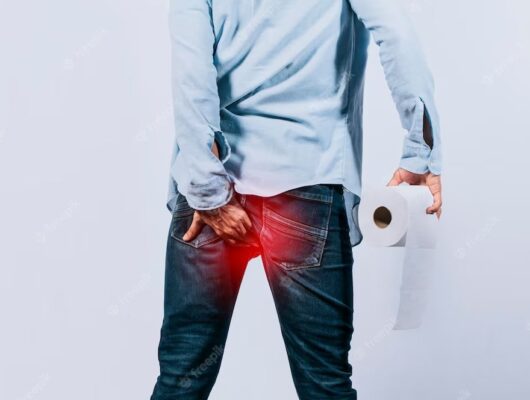Anal fissures are small tears in the lining of the anus, which can be extremely painful and uncomfortable. They are often caused by trauma to the anal area, such as constipation, straining during bowel movements, or even childbirth. While many cases of anal fissures can be treated at home, there are times when medical attention is necessary.
The best Anal Fissures treatment experts at Gut Care clinic here will discuss when to seek medical attention for anal fissures and how to diagnose the severity of your condition.
Symptoms of Anal Fissures
The symptoms of anal fissures can vary from person to person, but some of the most common include:
- Pain during bowel movements
- Bleeding during bowel movements
- Itching or burning around the anus
- A visible tear in the skin around the anus
- Pain or discomfort that lasts for hours after a bowel movement
If you are experiencing any of these symptoms, it’s essential to seek medical attention to determine the cause of your discomfort.
When to Seek Medical Attention
Most cases of anal fissures can be treated at home with over-the-counter medications and lifestyle changes. However, there are situations when medical attention is required that include:
- Your symptoms do not improve after a week of at-home treatment
- When experiencing severe pain or bleeding during bowel movements
- You have a fever or chills
- You have a history of inflammatory bowel disease or other gastrointestinal conditions
- You are pregnant or breastfeeding
If you are not sure whether your symptoms require medical attention, it’s always best to be cautious and schedule an appointment with your healthcare provider.
Diagnosing the Severity of Your Condition
If you seek medical attention for your anal fissures, your healthcare provider will likely perform a physical exam and ask about your symptoms. They may also perform a digital rectal examination to check for any abnormalities in the anal area. In some cases, they may also recommend additional tests, such as a sigmoidoscopy or colonoscopy, to rule out other conditions.
Once your healthcare provider has diagnosed your condition, they can determine the severity of your anal fissures and recommend a treatment plan. There are four levels of anal fissures, which are classified based on their severity:
Level 1: Superficial Fissure
A superficial fissure is a small tear in the skin around the anus that does not extend into the muscle tissue. This type of fissure is typically the easiest to treat and may heal on its own with at-home treatments.
Level 2: Partial-Thickness Fissure
A partial-thickness fissure is a tear that extends into the muscle tissue around the anus. This type of fissure may require more aggressive treatment, such as prescription medications or surgical intervention.
Level 3: Full-Thickness Fissure
A full-thickness fissure is a tear that extends all the way through the muscle tissue around the anus. This type of fissure is typically the most painful and may require surgical intervention to repair.
Level 4: Complex Fissure
A complex fissure is a tear that has been present for an extended period of time and may be accompanied by other conditions, such as anal fistulas or abscesses. This type of fissure may require multiple treatments and surgical interventions.
Treatment Options for Anal Fissures
The treatment for anal fissures often depends on the severity of the condition. Mild cases can often be treated with at-home remedies such as increasing fiber intake, staying hydrated, and using over-the-counter creams or ointments. In more severe cases, prescription medications like muscle relaxants or pain relievers may be necessary.
In some cases, surgical intervention may be required, such as a sphincterotomy, which involves cutting the internal anal sphincter to relax the muscle and promote healing. It’s important to work with anal fissures specialists to determine the best treatment plan for your individual needs.
Why Gutcare?
A Gut care clinic, the best anal fissures treatment hospital in Bangalore can be an ideal place to diagnose anal fissures because they specialize in treating conditions related to the gastrointestinal system, including the anus and rectum. Our team has the expertise and experience to perform a thorough physical exam, ask the right questions, and order any necessary tests to accurately diagnose anal fissures.
Additionally, we can provide tailored treatment plans based on the severity of the fissure and any underlying conditions. Seeking care from a gut care clinic can ensure that you receive the most appropriate diagnosis and treatment for your anal fissure.





